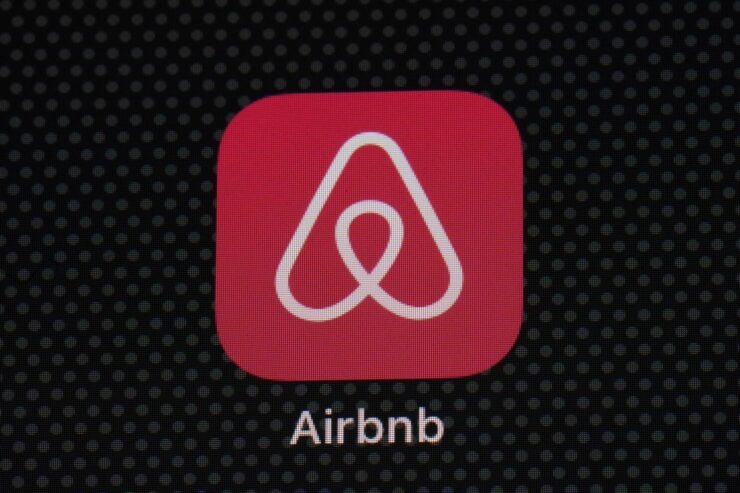Many Americans are diversifying their income sources, with a recent survey revealing that one in three U.S. residents has a side job. These additional jobs can serve various purposes, from funding vacations to breaking free from a paycheck-to-paycheck lifestyle.
However, it’s essential to evaluate if the added effort for a side hustle is genuinely beneficial, especially when 85% of gig workers make $500 or less monthly.
One notable exception is Airbnb hosting, where hosts average earnings of $924 monthly. This option is not only potentially more profitable but also offers a more passive income stream compared to tasks like food delivery or ride-sharing.
While it sounds promising, there are both pros and cons to consider when deciding to become an Airbnb host. Let’s delve into the benefits and challenges of this side gig.
Pros of Hosting an Airbnb
1. Potential for High Profitability
Airbnb can be a lucrative venture. The earnings from short-term rentals can surpass those from long-term leases, especially if your property is in a prime location. However, to maximize profits, it’s crucial to maintain a high occupancy rate.
2. Tax Benefits and Social Interactions
Apart from the direct earnings, hosting on Airbnb can offer tax advantages. Additionally, it provides an opportunity to meet and interact with travelers from various parts of the world, enriching your cultural experiences.
3. Quick and Substantial Income
Airbnb stands out as one of the most rewarding platforms in the sharing economy. The income generated can accumulate rapidly based on your property’s location.
For instance, popular tourist spots like Orlando, when analyzed on the home-sharing data platform AirDNA, show an average nightly rate of around $200. Even during the off-peak season in 2021, the rates stood at $187 per day.
This means you can potentially earn a four-figure sum in just a week, although this is before deducting expenses, fees, and taxes.
4. Passive Income Stream
Once you’ve set up your space and welcomed your guests, the earnings begin. Unlike other side gigs, Airbnb hosting requires minimal active involvement, making the income more passive and less labor-intensive.
5. Meeting New People
Hosting an Airbnb property, especially in renowned tourist hubs like New York City or Orlando, opens the door to a diverse range of guests.
From business professionals and sightseeing tourists to newlyweds and families on vacation, to the ever-growing community of digital nomads, your property can attract a myriad of individuals.
While not all guests might be keen on socializing, many will appreciate insights about the local neighborhood, hidden gems, and cultural nuances of the city.
Sharing these tidbits not only enhances their travel experience but also allows you to expand your circle of acquaintances. Some guests might just pass through, but others could turn into repeat visitors, coming back season after season.
This continuous interaction offers a unique opportunity to forge connections from different corners of the world, right from the comfort of your home.
Cons of Hosting on Airbnb
1. Maintenance and Upkeep
Regularly hosting guests means more wear and tear on your property. This can lead to frequent maintenance, cleaning, and potential renovations, which can be both time-consuming and costly.
2. Unpredictable Guests
While many guests are respectful, there’s always a risk of hosting someone who might damage your property or disturb the neighbors. This unpredictability can be stressful for hosts.
3. Regulatory and Legal Hurdles
Many cities and municipalities have regulations regarding short-term rentals. Navigating these rules, obtaining necessary permits, and paying local taxes can be complex and challenging.
4. Intense Competition
As Airbnb grows in popularity, more hosts are joining the platform. This increased competition can make it harder to maintain a high occupancy rate, especially during off-peak seasons.
5. Inconsistent Income
Unlike long-term leasing, the income from Airbnb can be inconsistent. There might be months with high occupancy and others where the property remains vacant, leading to fluctuating earnings.
6. Time Commitment
Being an Airbnb host isn’t just about listing your property. It involves communicating with potential guests, managing bookings, addressing concerns, and ensuring a smooth check-in and check-out process. This can be time-consuming, especially for new hosts.
7. Privacy Concerns
Having strangers frequently stay in your property can raise concerns about privacy and security, especially if you live on the same premises or nearby.
8. Potential Strain on Local Housing
In some cities, the rise of Airbnb has been linked to a decrease in available long-term rentals, which can drive up local housing prices and strain the rental market.
9. Negative Reviews
One negative review can significantly impact your listing’s attractiveness. Managing guest expectations and ensuring their satisfaction becomes crucial, but there’s always a risk of receiving unfavorable feedback.
10. Increased Utility Bills
With guests coming and going, utility bills, especially water and electricity, can see a noticeable increase, impacting the overall profitability of the venture.
While Airbnb hosting offers numerous benefits, it’s essential to weigh these challenges to make an informed decision about whether it’s the right fit for you.
Essential Things To Know
Different locales come with their own set of regulations and tax implications for holiday rentals. In certain cities, for instance, you might need to officially register and obtain a license to operate as an Airbnb host. Additionally, local zoning laws might prohibit vacation rentals in specific zones.
Before diving into hosting, it’s crucial to acquaint yourself with the regulations specific to your area.
The volume of tourist influx is another factor to consider. In sought-after destinations like New York City or Orlando, there’s a heightened demand for top-notch vacation rentals. Properties in such hotspots can yield higher returns when listed on Airbnb.
To optimize your listing, ensure it provides a detailed description of the property, its location, and the amenities on offer. High-quality photos can significantly boost your booking rates.
Offering little extras, such as snacks, bottled water, and other amenities, can enhance the guest experience and make them feel they’re getting value for their money.
FAQ
Is it better to host on Airbnb or Booking?
Both platforms have their advantages. Airbnb offers a more personalized hosting experience, allowing hosts to interact directly with guests and set their house rules.
Booking.com, primarily known for hotel bookings, has a broader audience and doesn’t charge hosts for listing their property. The best platform depends on your preferences and the kind of guests you aim to attract.
What I wish I knew before hosting Airbnb?
Many hosts wish they had known about the importance of setting clear house rules, the time commitment involved in managing bookings and guest communications, the potential for unexpected maintenance issues, and the significance of regularly updating their listing to remain competitive.
Do Airbnb hosts make a lot?
Earnings vary based on location, property type, and management style. While some hosts make a substantial income, especially in tourist hotspots, others might earn just enough to cover their property’s expenses.
On average, Airbnb hosts can earn between $500 to $1,000 a month, but this can be much higher in prime locations.
Is hosting an Airbnb a lot of work?
Yes, hosting can be time-consuming. It involves managing bookings, communicating with guests, ensuring the property is clean and well-maintained, addressing any issues that arise during a guest’s stay, and staying updated with local regulations.
Is Airbnb hosting stressful?
It can be, especially for new hosts. Challenges include dealing with difficult guests, handling property damages, managing back-to-back bookings, and ensuring consistent positive reviews. However, with experience, many hosts develop strategies to minimize stress..
Final Words
Airbnb hosting presents a unique opportunity for individuals to diversify their income streams. With the potential for high profitability, cultural interactions, and a more passive income model, it stands out in the gig economy. However, like any business venture, it comes with its set of challenges.
From managing property maintenance to navigating local regulations, being an Airbnb host requires dedication, research, and adaptability.
By weighing the pros and cons and staying informed, hosts can make the most of this platform and ensure a rewarding experience for both themselves and their guests.




















